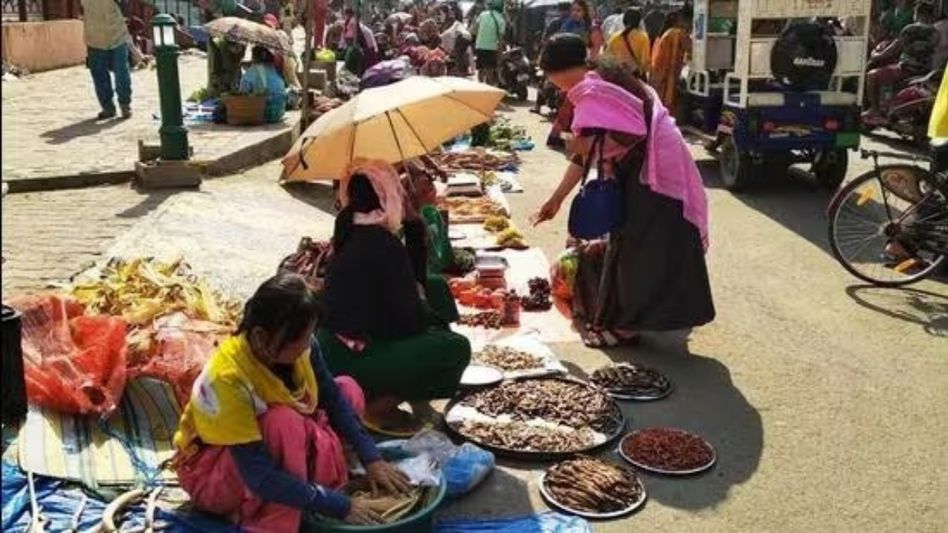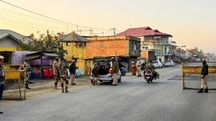Prices of essential items go sky-high in violence-torn Manipur
Prices of vital goods have risen in Manipur since the ethnic conflict began three weeks ago since imports from outside the state have been hampered.
 Prices of essential items go sky-high in violence-torn Manipur
Prices of essential items go sky-high in violence-torn ManipurPrices of vital goods have risen in Manipur since the ethnic conflict began three weeks ago since imports from outside the state have been hampered, with certain things selling for double the typical price.
Rice, potato, onion, and egg, as well as LPG cylinders and fuel, are selling at much higher prices in most sections of the landlocked northeastern state.
“Earlier, one 50 kg bag of superfine rice costs Rs 900 but now it has gone up to Rs 1,800. Prices of potatoes and onions also increased by Rs 20 to Rs 30. In general, prices for all the essential commodities brought from outside have gone up,” said Manglembi Chanam, a government school teacher in Imphal West district. She said LPG cylinders are being sold in the black market for Rs 1,800, while a litre of petrol costs Rs 170 in many parts of Imphal West district.
“Prices of eggs have increased as well, with one crate containing 30 eggs costing Rs 300 instead of the usual Rs 180. Were it not for the security forces escorting trucks carrying essential commodities, the price rise would have been more. Even potatoes had reached Rs 100 per kilo before security forces came into the scene,” Chanam said.
Truck traffic to the Imphal Valley was halted owing to barricades and transporter anxiety after a 'Tribal Solidarity March' was held in the hill districts on May 3 to protest the Meitei community's demand for Scheduled Tribe (ST) status.
“As a result, the stock of essential supplies in the state dwindled and began to reach critical levels which resulted in planning movement through NH 37,” a defence official said. Movement of trucks on NH 37 commenced on May 15 and security forces remain committed to restoring complete normalcy, the spokesperson said.
Prices of important goods rose in places that were unaffected by the violence between the Meitei and Kuki communities, which killed over 70 people.
Rebecca Gangmei, 41, who runs a grocery shop and an eatery in Tamenglong district headquarters, said, “Prices of essential items particularly rice witnessed a steep rise though there has been no violence in our district. Only the prices of meat have not seen much changes as it is not imported and taken from locals.”
Pamchuila Kashung, an assistant professor in the government college in Ukhrul district, said she is lucky as she stays near Nagaland from where essential items come.
“Despite that, prices of some items have increased, particularly rice,” Kashung said. Some people also said prices of tobacco products to have risen manyfold.
According to a consumer affairs official, the government fixes pricing on a regular basis, and anyone selling items at higher costs risks being penalised. Days after the violence erupted, the state administration produced a list of updated wholesale and retail prices for up to 18 food products.
Though the violence in Manipur began on May 3, it was preceded by a series of minor agitations against the displacement of Kuki people from reserve forest land.
Meiteis make up around 53% of Manipur's population and dwell mostly in the Imphal Valley.
Tribals – Nagas and Kukis – make up another 40 per cent of the population and live in the hill areas. Over 70 people were killed in ethnic confrontations, and 10,000 army and paramilitary men were needed to restore order in the northeastern state.
Copyright©2025 Living Media India Limited. For reprint rights: Syndications Today









